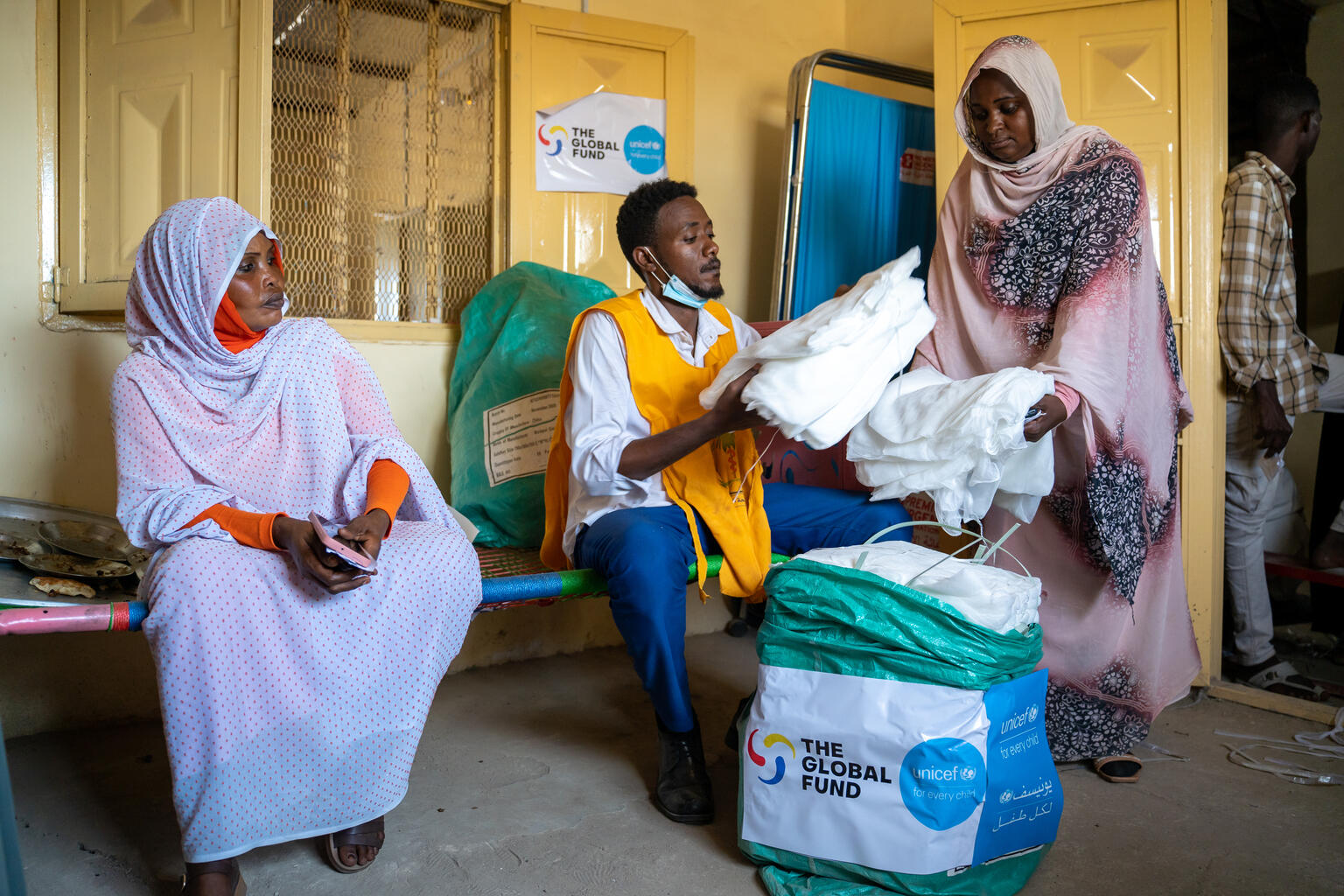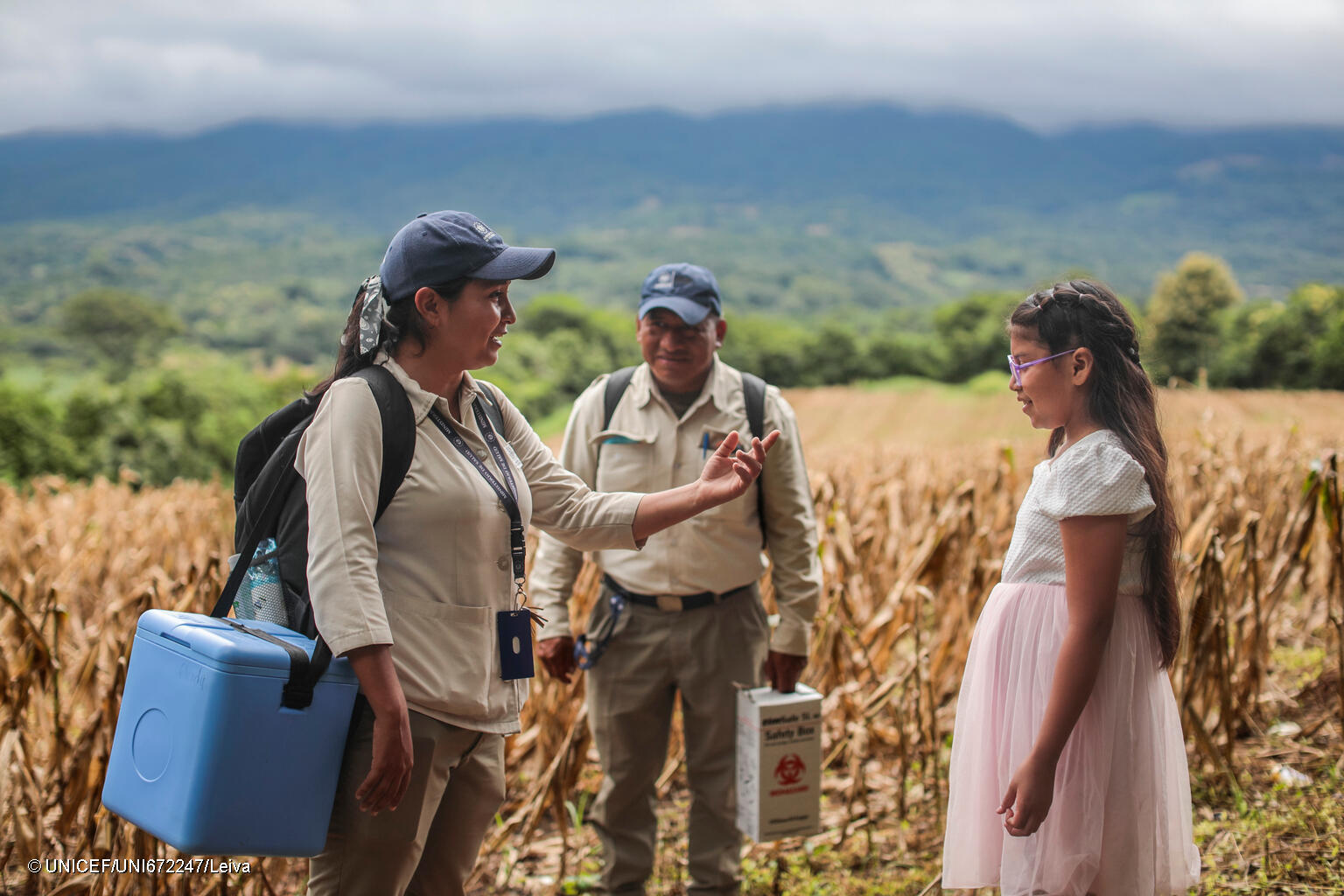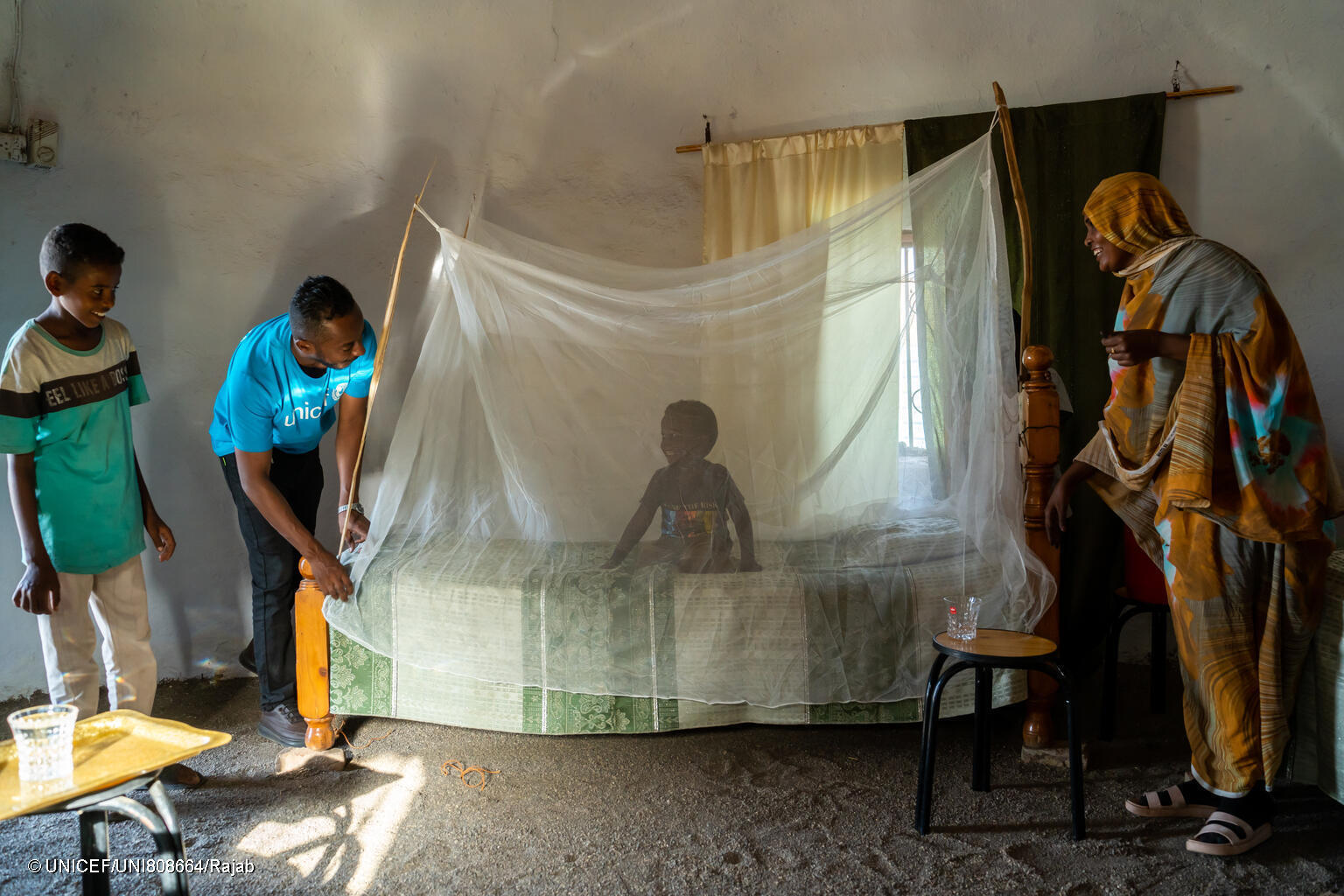An Opportunity to Commit to Disease Elimination
The President's Budget Request for FY26 cuts overall global health spending while prioritizing polio and malaria. We can make historic progress against these diseases, but only if U.S. and multilateral programs are fully funded.

On May 30, the White House released the Trump Administration’s detailed budget request for FY26. While the State Department’s Congressional Budget Justification proposes a 62% overall cut to global health programs, it specifically prioritizes funding for global health security efforts to prevent infectious diseases, including polio eradication programs and the President’s Malaria Initiative (PMI).
For centuries, polio and malaria have taken countless lives, but in recent times strong U.S. leadership has driven these diseases into fewer remaining pockets around the globe, in collaboration with international partners. Thanks to polio immunization programs, polio cases have been reduced by 99.9% from more than 350,000 per year in the 1980s to under 100 in 2024. Through the work of U.S. bilateral programs like PMI, multilaterals like the Global Fund to Fight AIDS, Tuberculosis and Malaria, and international partners, the death rate from malaria has been cut in half since 2000.
The Administration has the opportunity to build on these successes and secure truly historic achievements with the U.S. as a leader in ending these diseases that have long plagued humanity. Polio is on the brink of eradication, which would make it the second-ever human disease to be eradicated after smallpox. More countries eliminate malaria every year, just as the U.S. did nearly 75 years ago, and we can supercharge progress with innovative tools like the new malaria vaccines.
But this will only be possible through strong funding for bilateral programs and close cooperation with multilateral partners like the Global Fund, UNICEF, and Gavi, the Vaccine Alliance. These organizations have been critical to the progress we have made against polio and malaria. Their work is an irreplaceable amplifier to U.S. investments, and with continued U.S. support and partnership, they will help make this legacy possible.
Polio on the Precipice of Eradication
The incredible progress made against polio has been possible through the collaborative work of the U.S. and other leading global health donors and multilateral institutions like UNICEF and Gavi—neither of which have specific funding allocations included in the Budget Justification.
UNICEF is the world’s largest single purchaser of vaccines, managing the procurement and distribution of more than 1 billion polio vaccines each year and helping to vaccinate 400 million children against the disease annually. Beyond procurement UNICEF manages the global vaccine cold chain, which reduces waste by ensuring vaccines reach the field without spoiling or losing efficacy. Finally, local UNICEF staff lay the groundwork for successful vaccination campaigns by partnering with community faith and political leaders weeks in advance. Staff also go door-to-door to educate families, answer questions, and raise awareness about the importance of immunizing their children against the debilitating effects of polio.

A health promoter assigned to the Zacamil Guazapa Health Unit in San Salvador conducts a monitoring visit.
Gavi plays a complementary role in polio eradication and routine immunization. A public-private partnership that pools demand and resources to help lower-income countries finance immunization programs, Gavi is also the leading purchaser of U.S.-made vaccines. Over the past 5 years, the U.S. has invested $1.17 billion in Gavi—and in return,
GAVI has purchased $4 billion worth of vaccines from American companies—a four-fold return on investment
Its work has been critical to the procurement of inactivated polio vaccine (IPV), a more stable—but more expensive—alternative to the oral polio vaccine (OPV) still used in much of the developing world. All Gavi-supported countries have introduced IPV into their routine immunization schedules, putting them on the path to sustainable eradication and a future free of polio outbreaks.
Finally, Gavi’s model—through which countries contribute some of their own funding and ultimately take full responsibility for their immunization programs—means U.S. investment in Gavi is an investment in building self-reliance abroad, all while keeping Americans safe from diseases like polio and generating economic returns at home.
Failure to eradicate polio could lead to a resurgence, to the tune of hundreds of thousands of annual cases within the next decade, including outbreaks within our country. But finishing the job would save an estimated $33 billion and free up resources to tackle emerging health threats. Continued partnership with UNICEF and Gavi means we can get over the finish line together and pivot to the health challenges of tomorrow.
A Time to Accelerate Progress Against Malaria
U.S. leadership has galvanized enormous progress against malaria over the last twenty years. Continued progress in reducing child mortality and achieving elimination will require sufficient funding for PMI and its multilateral counterpart, the Global Fund, working in concert with endemic countries’ investments.

The Ministry of Health, in partnership with UNICEF and the Global Fund, launched a mass campaign to distribute nearly 15.6 million insecticide-treated bed nets to prevent the spread of malaria.
The Global Fund is an independent financing institution that has been on the leading edge of our progress against malaria over recent decades. Since its founding in 2002, Global Fund-supported programs have saved 65 million lives, in part by dramatically expanding access to mosquito nets, seasonal chemoprevention treatments, and testing. In 2023 alone, the Global Fund provided more than 227 million bed nets and protected tens of millions of mothers and children with preventative treatments. The Global Fund is also the largest multilateral grants provider for health systems strengthening, meaning investments in the global fund don’t just strengthen defenses against malaria—they help countries build resilience to a range of diseases and emerging health threats like anti-microbial resistance.
The Budget Justification does not include a specific funding amount for the Global Fund, only indicating that it may be funded through the new America First Opportunity Fund. The Justification does specify that the U.S. match requirement would change, meaning the U.S. would now contribute $1 for every $4 invested by other donors, rather than $1 for every $2.
An overall reduction in support for the Global Fund could mean backsliding after decades of sustained progress against malaria and weakened health systems that cannot contain diseases before they spread to the U.S. What’s more, a change in the U.S. match requirement could compound any cuts to overall funding, reducing the incentive for other countries to contribute and leading to fewer overall resources for the Global Fund.
44 countries, and counting, have already eliminated malaria. We can ultimately achieve a malaria-free world, but only if we continue to invest in and bolster proven programs, like PMI and the Global Fund, that have kept progress on track and will help us accelerate it.
Conclusion
The Administration’s proposed budget for FY26 rightly prioritizes global health security programs that keep Americans safe and “providing lifesaving assistance to those suffering from HIV/AIDS, Tuberculosis, Polio, and Malaria.”
However, strong funding is needed for irreplaceable, complementary multilateral programs that serve as a force-multiplier to our country’s bilateral investments in global health. U.S. polio and malaria programs are vital, but they do not work in siloes. They are only able to save lives overseas and protect American health at home because they operate in conjunction with the Global Fund, UNICEF, and Gavi.
Lasting progress against polio and malaria is possible. It would stand alongside smallpox eradication as a historic achievement of American innovation, ingenuity, and humanitarianism. To get there, we need to double down on the investments that have gotten us this far and will make a healthier future possible.
